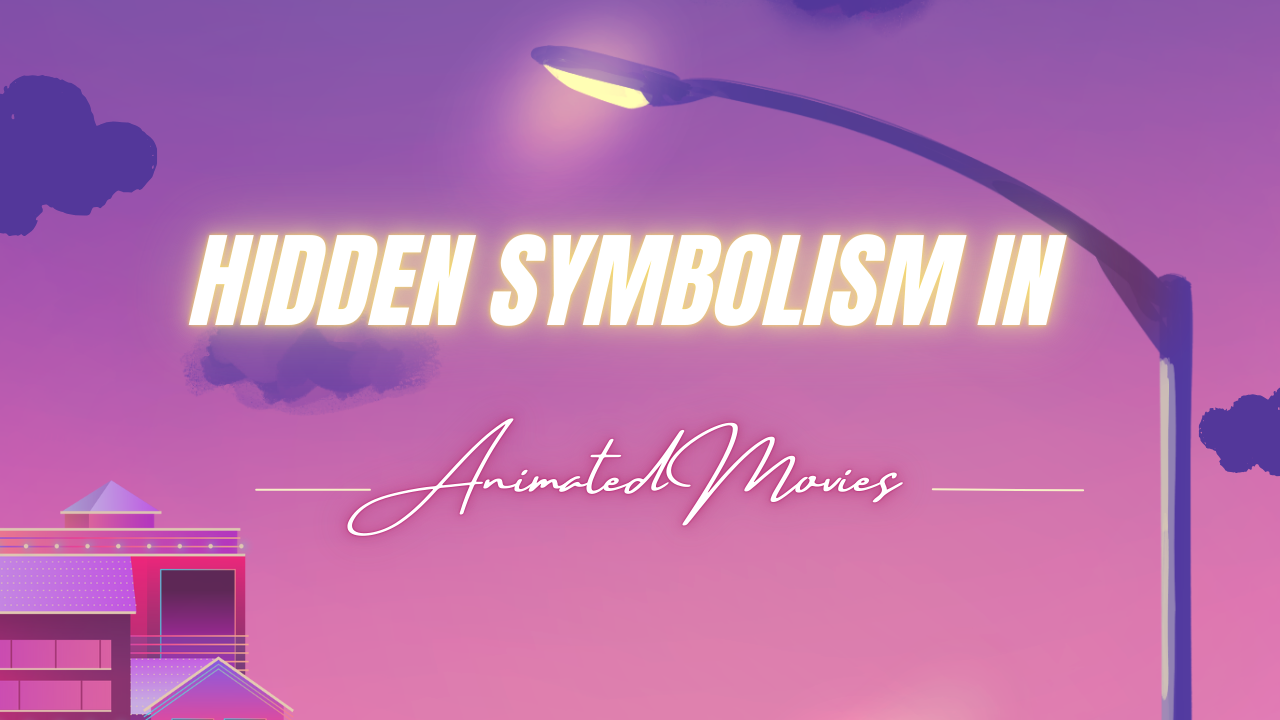Animated films are often dismissed as child-friendly entertainment, but beneath their vibrant visuals lie layers of deeper meaning. From classic Disney tales to award-winning Pixar stories and Studio Ghibli masterpieces, many animated movies are packed with hidden symbolism, sociopolitical allegories, and complex emotional insights.
In this article, we’ll decode the secret messages in some of the most iconic animated films—and show you why animation is one of the most powerful storytelling tools in cinema.

1. The Lion King and Hamlet: A Shakespearean Tragedy in the Savanna
Most viewers recognize that The Lion King draws inspiration from Shakespeare’s Hamlet, but the parallels go beyond the basic storyline.
-
Scar as Claudius: Both characters murder their brothers to seize the throne.
-
Hyenas as the Marginalized: Scar manipulates an oppressed underclass to maintain control—echoing political tactics throughout history.
-
Rafiki’s Role: Much like Shakespeare’s fools, Rafiki offers wisdom through absurdity.
Interestingly, early drafts reportedly included scenes with Mufasa’s ghost haunting Scar—an even more direct nod to Hamlet.
2. Zootopia: A Modern Allegory for Systemic Racism and Prejudice
While Zootopia appears to be a whimsical animal-themed buddy cop adventure, it delivers a surprisingly nuanced critique of racial profiling and unconscious bias.
-
Predators vs. Prey: This divide mirrors real-world racial dynamics and societal fear-mongering.
-
The “Night Howler” Crisis: Reflects mass hysteria over drug epidemics and crime waves, reminiscent of the U.S. “War on Drugs.”
-
Judy Hopps’ Growth: The protagonist herself demonstrates how even well-intentioned individuals can hold harmful biases.
The filmmakers reportedly consulted sociologists and diversity experts to ensure these themes were portrayed accurately.
3. Inside Out: Teaching Emotional Intelligence Through Animation
Pixar’s Inside Out does more than entertain—it educates viewers about mental health and emotional complexity.
-
Sadness as a Vital Emotion: The film argues that sadness isn’t weakness—it’s necessary for healing and growth.
-
Islands of Personality: These represent aspects of identity, which can crumble under emotional upheaval, such as childhood trauma.
-
Bing Bong’s Sacrifice: His emotional farewell symbolizes the bittersweet transition from childhood imagination to mature understanding.
Psychologists have praised Inside Out for helping children (and adults) process their feelings in healthier ways.
4. Spirited Away: Capitalism, Identity, and Cultural Loss
Hayao Miyazaki’s Spirited Away is often described as a surreal coming-of-age fantasy, but its themes dig deep into Japan’s economic and cultural anxieties.
-
Chihiro’s Name Change: Losing her name represents the loss of self in a consumer-driven society.
-
No-Face’s Endless Hunger: A metaphor for unchecked greed and emotional emptiness.
-
The Bathhouse: Symbolizes exploitative labor and the dehumanization of workers in rigid corporate systems.
Miyazaki has openly stated that the film was meant as a critique of modern consumerism and a reminder of fading traditional values.
5. Frozen: Challenging Traditional Fairy Tale Narratives
Disney’s Frozen subverts classic tropes while addressing modern themes of identity, self-acceptance, and emotional isolation.
-
True Love Is Familial: Anna’s selfless act to save Elsa redefines the idea of “true love” beyond romance.
-
Hans as the Prince Who Lies: Criticizes the outdated notion that a charming stranger is always trustworthy.
-
Elsa’s Powers as Suppression: Many viewers—and scholars—interpret Elsa’s storyline as a metaphor for LGBTQ+ identity and the societal pressure to hide one’s true self.
Although Disney has never confirmed Elsa as an LGBTQ+ character, the symbolism is powerful enough to inspire a global fan movement.
Why Animators Include Hidden Messages
Symbolism and layered storytelling allow animated filmmakers to reach both children and adults—each on their own level. Here’s why they do it:
-
Broaden appeal: Adults stay engaged through deeper themes and cultural references.
-
Encourage rewatching: Symbolic clues give films longevity and replay value.
-
Spark conversations: Movies like Zootopia and Inside Out encourage discussion about real-life issues.
Animation isn’t a lesser art form—it’s often more daring in how it handles mature topics through allegory and metaphor.
Final Thoughts: There’s More Than Meets the Eye in Animated Films
Whether it’s Toy Story exploring existential fear or Moana representing indigenous resilience, animated movies contain much more than colorful visuals and catchy songs.
So the next time you watch your favorite animated film, look a little deeper. You might just discover that what seemed like a simple cartoon is actually a powerful commentary on life, identity, and society.
Want More Movie Symbolism?
If you enjoyed this breakdown, check out our other guides on hidden meanings in classic films, cult favorites, and even horror movies. Subscribe for weekly deep dives into the media you love!
if you liked reading this article also checkout : Click Here
also checkout: Click Here



